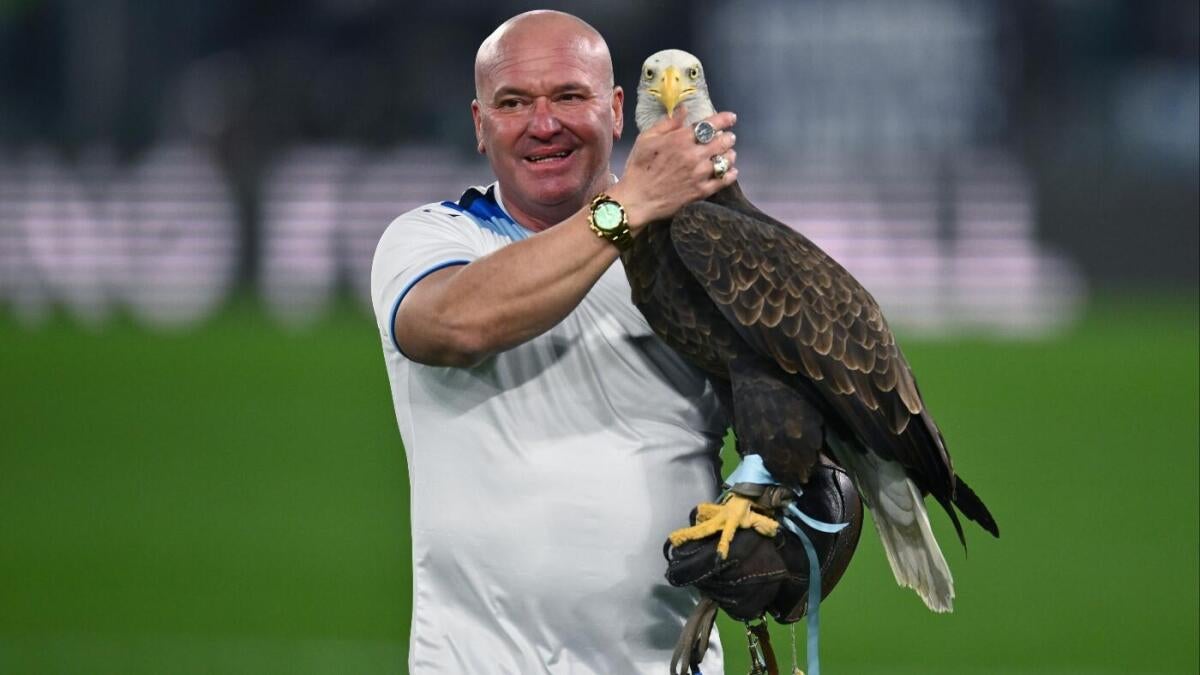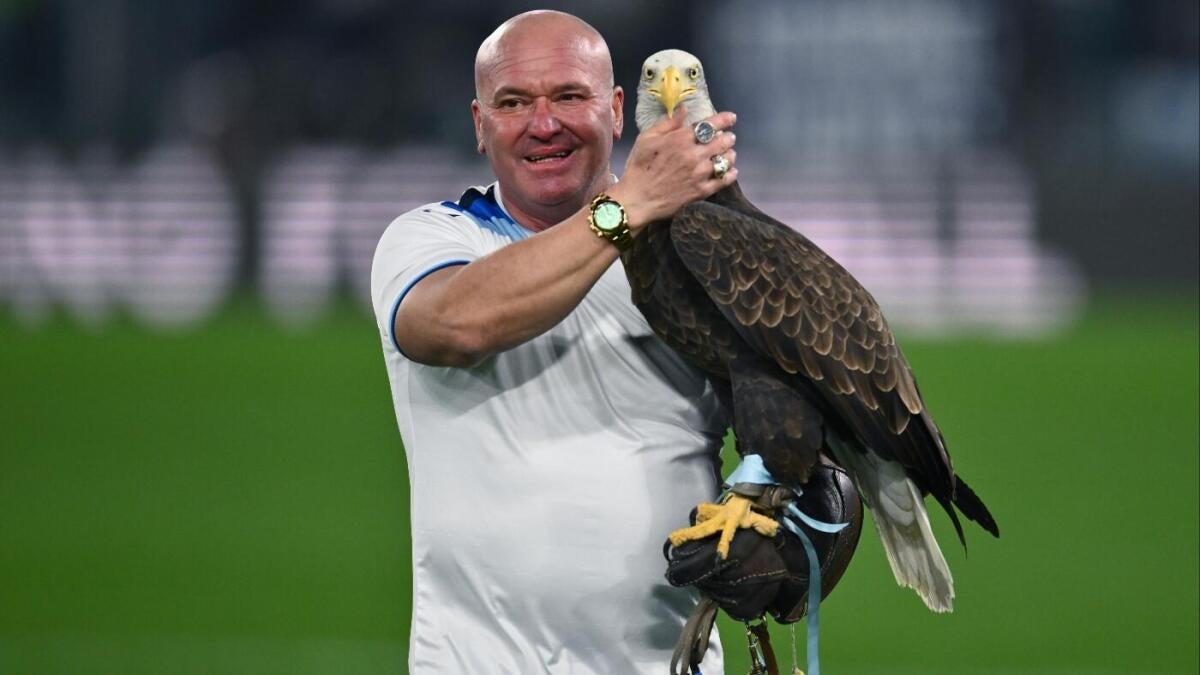The firing of Juan Bernabe, the falconer responsible for handling SS Lazio’s iconic eagle mascot Olympia, after his social media posts featuring his prosthetic genitalia, presents a fascinating intersection of individual expression, public relations, and the cultural symbolism tied to sports institutions. This case illustrates not only how personal actions of club personnel can impact an entire organization’s image but also raises questions about privacy, professionalism, and contemporary norms in the digital age.
The Role of the Falconer and the Eagle Mascot
SS Lazio, a venerable Italian Serie A football club based in Rome, is renowned for its strong traditions and passionate fanbase. Among these traditions is the flying of an eagle mascot named Olympia over the stadium before matches, symbolizing power, freedom, and the spirit of the club. The falconer’s role is integral; handling the eagle requires skill and dedication, as the bird is a living emblem of Lazio’s identity. The eagle’s dramatic flights have become a cherished pre-match ritual, adding to the club’s unique atmosphere and reinforcing its historical connection to Rome.
Juan Bernabe had served as Lazio’s eagle handler since the 2010-2011 season, a position that made him an important figure in the matchday experience for fans and a visible representative of the club’s heritage. His role was not merely ceremonial; it involved meticulous care and training of the eagle, ensuring that the bird remained a symbol of strength and grace. The falconer’s presence at matches was a reminder of the club’s deep-rooted traditions, which are central to its identity.
The Controversy: Prosthetic Penis Surgery and Social Media Posts
In early 2024, Bernabe underwent surgery to have a penile implant, intended to enhance his sexual performance rather than serving a medical necessity. Following the procedure, he posted explicit photos and videos of his prosthetic penis on his private social media accounts. Although reportedly done without ill intent, these posts were widely viewed as inappropriate given his public association with Lazio. The posts, which were shared on platforms like Instagram and Twitter, quickly gained traction, sparking widespread discussion and criticism.
Lazio’s management responded swiftly and decisively, terminating Bernabe’s contract “with immediate effect,” citing the seriousness of his behavior. The official statement underscored shock and disappointment at the content shared and the accompanying commentary, highlighting a breach of expectations for conduct for anyone associated with the club. The club’s decision to fire Bernabe was seen as a protective measure to safeguard its reputation and maintain the integrity of its traditions.
Public and Media Reaction
This incident generated significant media coverage and social media debate. Some fans and observers expressed disbelief and amusement at the unconventional reason behind the falconer’s dismissal. Others criticized the club’s handling, arguing that the posts were shared on a private account and involved Bernabe’s personal body, raising privacy concerns. The topic also engaged conversations about workplace boundaries in the digital era, especially for public-facing roles tied to institutions with broad community reach.
The case underlined delicate lines between personal freedom of expression and professional expectations, especially when one’s personal life becomes entangled with a public brand. The incident highlighted the challenges faced by individuals in high-profile roles, where personal actions can have professional repercussions. The media’s coverage of the story further amplified the controversy, drawing attention to the intersection of personal privacy and public accountability.
Implications for Lazio and Its Traditions
Bernabe’s firing meant that Olympia, the eagle mascot whose dramatic flights energized crowds at Lazio’s home games, was grounded indefinitely. Losing the symbolic presence of Olympia arguably diminishes the atmosphere that fans have come to cherish and complicates the club’s efforts to preserve tradition amidst modern challenges. The absence of the eagle during matches has been noticed by fans, who have expressed nostalgia for the pre-match ritual.
Moreover, the delay—months between Bernabe’s dismissal in January and his eviction from the club’s training ground residence—added another layer of intrigue and logistical challenges for Lazio. The prolonged process of finding a new falconer and retraining the eagle has been a significant undertaking for the club, highlighting the importance of the role in maintaining the club’s traditions.
Broader Reflections on Social Media, Identity, and Professionalism
This incident is emblematic of broader cultural shifts where social media usage by employees, even in ostensibly private capacities, can have far-reaching consequences. Individuals who hold roles tied to institutions with strong public profiles must navigate an often unforgiving landscape where personal disclosures can quickly become organizational crises. Sports clubs, particularly those steeped in tradition like Lazio, grapple with maintaining their image while respecting personal liberties of their employees.
Bernabe’s case demonstrates that social media content involving explicit material, even if unrelated to job duties, can clash sharply with brand values and public expectations. It also highlights how rapidly clubs must respond to public relations challenges in the digital age. Lazio’s “speed of light” response—terminating both Bernabe and the doctor involved in the surgery after images surfaced—suggests a zero-tolerance approach aimed at protecting institutional reputation.
Conclusion: Navigating Tradition, Individuality, and Modern Media Risks
The firing of Lazio’s eagle falconer for posting photos of his prosthetic penis captures a unique confluence of personal expression, professional responsibility, and digital exposure. It signals evolving challenges for sports organizations in preserving their historic traditions while adapting to the realities of contemporary social media culture. For Lazio, the absence of Olympia flying overhead is more than just losing a matchday spectacle; it’s a disruption to a narrative central to club identity.
For individuals operating in high-visibility roles, the episode serves as a cautionary tale about the interplay between private life and public association. Ultimately, this episode illustrates how deeply intertwined the personal and professional realms have become in the internet era, and how actions once considered private can swiftly influence an entire organization’s narrative and legacy. In facing these realities, both individuals and institutions must continuously negotiate the boundaries of expression, professionalism, and symbolic meaning in an age of instant sharing and relentless scrutiny.












